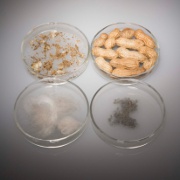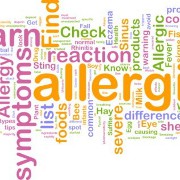Diagnosis
The doctor will ask about your symptoms and medical history. A physical exam will be done. Food allergies are often diagnosed based on your own observations. It is a good idea to keep a diary of your symptoms. Note when they occur and what you have eaten.
Tests may include:
Elimination Diet
You may be asked to go on an elimination diet. This should be done under your doctor's care. You will not eat a suspected food. If your symptoms decrease or go away, your doctor can almost always make a diagnosis. If you eat the food and your symptoms come back, the diagnosis is confirmed. This method should not be used if symptoms are severe. It is most often only done in cases of atopic dermatitis . These are skin irritation issues. This test is uncommon in case with anaphylactic symptoms. These include wheezing, shortness of breath and drop in blood pressure.
Scratch Skin Test
Your doctor can also use a scratch skin test. The doctor will dilute an extract of the food. The dilute will be placed on your forearm or back skin. The skin is scratched with a small pick or tiny needles. If there is swelling or redness, an allergic reaction may be present. The doctor will make the diagnosis based on the skin test and your history of symptoms. Some skin tests can have a severe allergic reaction. This test should only be used under the supervision of a physician or other trained medical personnel. Severe eczema may make this test hard to interpret.
RAST or ELISA Test
The doctor may order blood tests (RAST or ELISA). These tests measure the level of food-specific IgE in the blood. IgE is a type of protein that the body produces when it comes in contact with something to which it is allergic. The presence of IgE in the blood may indicate an allergy.
Please be aware that this information is provided to supplement the care provided by your physician. It is neither intended nor implied to be a substitute for professional medical advice. CALL YOUR HEALTHCARE PROVIDER IMMEDIATELY IF YOU THINK YOU MAY HAVE A MEDICAL EMERGENCY. Always seek the advice of your physician or other qualified health provider prior to starting any new treatment or with any questions you may have regarding a medical condition. Copyright © 2024 EBSCO Publishing All rights reserved.

 Understanding Food Allergies in Children
Understanding Food Allergies in Children









